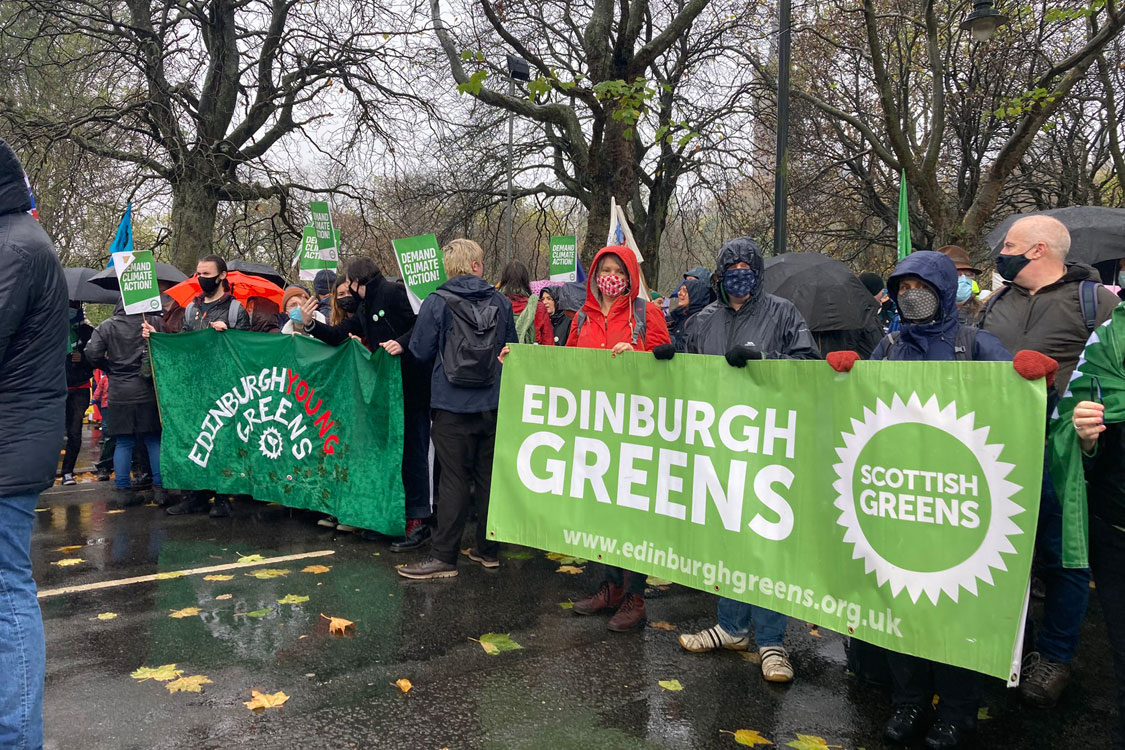This was the latest in a long line of conferences bringing together world leaders to ‘solve climate change’. What’s clear to people on the outside of the conference centre though – from school climate strikers to pension fund members – is that we already know the solutions. What we are lacking is the political will and courage to implement them.
The failure of the conference to deliver is not something we can blame on India’s negotiators or the US’s addiction to diesel. It is a wholesale decision by wealthier nations to ignore the repeated calls for action from those most affected by climate change, and instead exchange warm words while continuing to warm the planet.
Even here in Scotland, it was only as the end of the conference approached that Nicola Sturgeon finally voiced her disagreement with new oil extraction at the Cambo oil field – surely an obvious position for anyone who understands the science and severity of climate change.
In Edinburgh, too, we see climate hypocrisy in action. The council administration proudly boasts of their ‘green’ credentials while failing to make the radical changes we need. We have a responsibility to acknowledge our disproportionate contribution to climate change, and do all we can to tackle it.
We are also not immune from its impacts – our seafront is threatened, our drainage systems struggle to cope with increased rainfall, and unpredictable weather wreaks havoc on schools, businesses and public transport.
People in Edinburgh have taken the messages of climate justice to heart and want to make positive change. But despite the messages we hear from everyone from Boris to banks, individual action alone will not cut it.
We cannot simply tell people to recycle, when the bins are overflowing. We can’t shame car drivers when there’s no guarantee of a buggy or wheelchair space on Lothian buses. And we can’t talk honestly about cutting fossil fuel use in Edinburgh while our Parliament welcomes companies like BP in with open arms.
Green councillors are making a positive difference in Edinburgh – on public transport, warm homes, and climate education, for example. But how can we also make sure that our city is welcoming refugees, that we make amends for our white supremacist history, and that we enable safe protest? These are all issues of climate justice, and part of the vision we must have for Edinburgh’s future.
When faced with a huge global problem like climate change, progress can seem painfully slow, but if the pandemic has taught us anything it’s that people are, on the whole, smart and resourceful and kind.
So when I see activists supporting women’s right to choose by challenging anti-abortion protesters and then taking the fight to councils and parliament, or tenants’ unions doing more to shift the debate on rent controls than politicians have managed in decades, I feel optimistic that climate justice, too, is something we can achieve together.
Alys Mumford is the Edinburgh Green Party candidate for Portobello/Craigmillar in next year’s council elections

